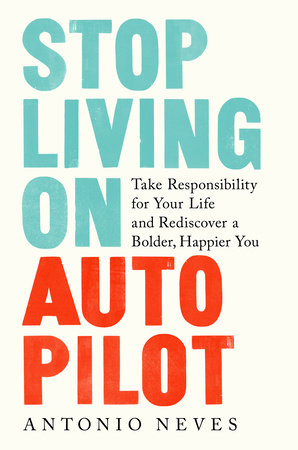YOU CAN DO ANYTHING YOU WANT, BUT . . .
In 2006, graduate school was winding down, and I was faced with the same issue as just about every other new grad: what to do next with my life.
At the time, I wanted to take the summer off and travel the world. I wanted to write a book. I wanted to create and sell a television show. I wanted to create and host a podcast. I wanted a job as a reporter with a top cable news network. I wanted to start my own business. I wanted to produce a documentary. I wanted to do every damn thing.
One day over coffee at a Turkish café in Manhattan, I shared this with a professor who had become a mentor. He kindly listened as I told him all of the things that I wanted to do.
When I finished, he looked at me, smiled, and said something I will never forget:
“You can do anything you want, but you can’t do everything.”
This was exactly what I didn’t want to hear. His answer pissed me off. Why? Because he was right. And now, I’m going to tell you the exact same thing that he told me:
You can do anything you want, but you can’t do everything.
For far too long, since we were old enough to comprehend words, we’ve been told and encouraged with these words: “You can do anything!”
Don’t get me wrong. I appreciate the optimism. But the next time you give a 9-year-old, or heck, a 43-year-old, this impassioned advice, you must then look them directly in the eyes and say:
“To be clear, you can do anything, but you can’t do everything. You’re going to have to choose. That is what’s going to separate you from everyone else, if you’re up for it.”
In this multihyphenate day and age, far too many people are trying to do everything.
When you try to do everything, most times you end up accomplishing nothing.
Whenever I find myself getting distracted with unimportant things that are actually steering me away from what I care about most, that conversation with my professor plays in my mind.
HOW MANY APPS DO YOU HAVE OPEN?
You know what happens when you have too many apps open on a computer or smartphone? Your operating speed slows down. Apps that you are actively using start to freeze because the other unused or minimized apps are sucking up all the energy, running behind the scenes without our knowledge—without even being useful.
Life is no different.
How many apps do you currently have open in your life? Are you attempting to do everything?
“Apps” could be jobs, hobbies, special projects, kids, housework, friends, caregiving, volunteer obligations, social appointments, and so forth. When we have too many apps open, there’s a lot of “I’m sooo busy” going on, but nothing actually gets done.
When we have too many apps open, we become so distracted we don’t have a true litmus test of how we feel. Countless research studies have confirmed that our brains were not designed for multitasking. Many of us have yet to fully embrace how important it is to guard our time and be selective about what we say yes to.
Take a moment and grab a blank piece of paper or open up a Google doc. Write down all of the “apps,” or in-progress projects and responsibilities, in your life. Identify which of those projects are just depleting your energy. Jot them all down and watch your blank piece of paper or screen quickly fill up.
Now, one by one, review all of your open apps and ask yourself if they really matter.
Which apps need to stay open? Which apps need to be closed for the foreseeable future? And which need to go in the trash once and for all? If you had to choose just one app to stay open, which would it be?
If the idea of choosing just one scares you, ask yourself why it scares you. If you’re honest with yourself, you’ll learn a lot from the answer.
If you’re not sure where to start, try eliminating a low-priority task that’s been a consistent thorn in your side and see how you feel. For example, maybe you feel an obligation to post weekly to a blog that you stopped caring about long ago. Or maybe each week, you get together with a group of friends to throw a few drinks back, but you do it solely out of obligation. Or maybe you’ve become the go-to person to give people rides to or from the airport, even with the existence of ride-sharing services. It could even be that nonprofit whose mission you really care about, but that takes up more and more of your time than you were truly hoping to give.
Once you experiment with eliminating some “apps,” even small ones, gauge your mood, your health, and even your excitement, or trepidation, to start each day. In my experience, you’ll find that once you identify which apps need to be closed in your life, you’ll have more energy, focus, and clarity. A powerful question to ask yourself is:
“What are you willing to give up to live the life that you say you want?”
The truth that most of us are afraid to acknowledge is that some things really do matter more than others. Knowing the difference between what does and doesn’t matter will profoundly change your life for the better.



